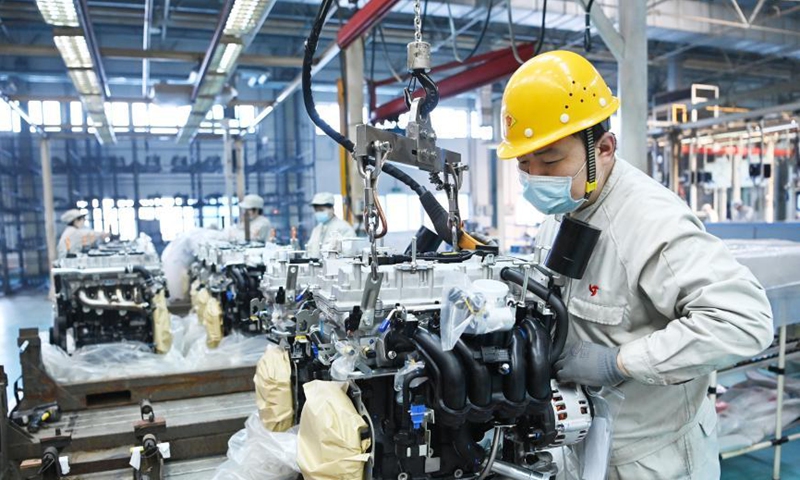 China is aiming to have its manufacturing enterprises fully digitized by 2035, with breakthroughs in various types of intelligent manufacturing equipment, key parts and devices and software, in a bid to upgrade its massive but declining manufacturing sectors and avoid technological blockades by the US.
China is aiming to have its manufacturing enterprises fully digitized by 2035, with breakthroughs in various types of intelligent manufacturing equipment, key parts and devices and software, in a bid to upgrade its massive but declining manufacturing sectors and avoid technological blockades by the US.
As part of a draft action plan issued on Wednesday, 70 percent of the intelligent manufacturing equipment and 50 percent of industrial software will be supplied domestically.
China will also aim to formulate or revise 200 national and industry standards for intelligent manufacturing and establish more than 120 industry internet platforms, said the draft plan released by the Ministry of Industry and Information Technology (MIIT).
To achieve these goals, China is to research and develop 1,000 kinds of advanced intelligent manufacturing devices and products, including automobile engines and gearboxes, aerospace large-scale composite intelligent placements, large-scale integrated circuit manufacturing equipment, and new display manufacturing equipment.
The draft plan will also focus on technologies in areas such as artificial intelligence, 5G, blockchain, virtual reality/augmented reality, and computing, according to the MIIT.
The draft plan also calls for further international cooperation and exchanges in tackling key problems of intelligent manufacturing technology, standard formation, testing and certification, and personnel training under the framework of the Belt and Road Initiative, the BRICs and the RCEP.
Multinational companies and foreign research institutions are encouraged to build intelligent manufacturing research and development centers, demonstration factories and talent training centers in China, according to the draft plan.
The draft plan will help to promote and accelerate self-sufficiency in key technologies, which face blockades by the US, said Hu Qimu, chief researcher at the Sinosteel Economic Research Institute.
"Only by developing new materials and advanced manufacturing can China break technological blockades imposed by Western countries," Hu told the Global Times.
The plans also aims to boost the added value of China's secondary industry, which serves as a backbone of the economy, he added.
According to the MIIT, the economic contribution of China's manufacturing industry is shrinking. In 2016, the proportion of manufacturing in the nation's economy peaked at 32.45 percent before declining to 27.17 percent in 2019.
"The development of advanced manufacturing and intelligent manufacturing is one way to realize industrial upgrading and improve the profitability of the manufacturing industry," he said.
Source: Global Times